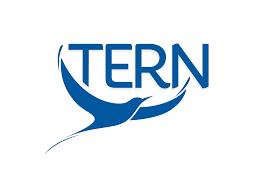
9 minute read
Q&A: The Entrepreneurial Refugee Network
JUST the job
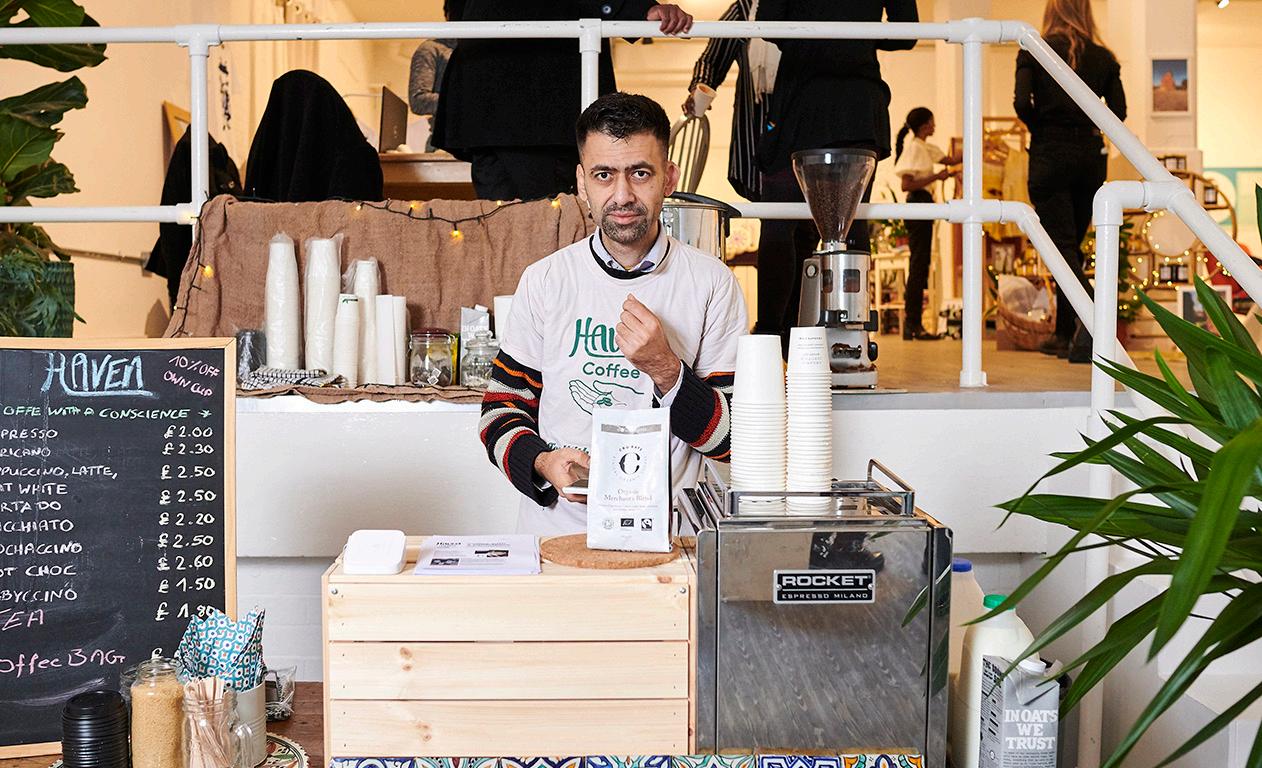
Advertisement
WHAT DOES TERN DO?
We help refugees to turn great ideas into dynamic businesses. Initially we were looking to simply fund refugee start-ups but then we discovered there was no targeted business support for the refugee community, so that’s when we switched course and decided to provide just that. We’ve put just over 450 refugees through our business support programme in the last five years.
WHERE DID THE IDEA COME FROM?
I am one of four founders and we’ve all had experiences with the refugee diaspora and were interested in the reality that refugees face when it comes to obtaining a livelihood in the UK. We felt that the philanthropic focus was too often on the crisis element of the refugee situation, and while this was triggering an amazing humanitarian response, it was creating a backlash too, with others seeing refugees as a danger and/or a burden to the economy. We wanted to re-frame the refugee community as a population with potential.
Charlie Fraser is co-founder of a social enterprise called The Entrepreneurial Refugee Network (TERN), helping refugees to thrive
HOW DOES YOUR PROGRAMME WORK?
It has three elements. The first stage is a pre-incubator. A lot of refugees are very experienced in business – about 70% have started or managed businesses outside of the UK – but when they come to us many are exploring if self-employment is the right route for them to take in the UK. The pre-incubator aims to help them to make an informed decision. It’s an intensive programme and every refugee is paired with a mentor and offered employment too.
About two thirds of entrepreneurs go onto the second stage, the Business Incubator, which takes five to six months and is focused on them launching a business and trading sustainably. At this point they have an idea they want to take to market. We give them information on business finance, customer service, building a brand and a website and all the other fundamentals they will need in place to get a business off the ground.
The last stage of our support is called On-Demand and comprises flexible one-on-one business advice focused on solving problems. It takes a long time to build a business so we need to be able to provide sustained support and connection.
All our business support is free and funded primarily from corporate partnerships. The remaining third of funding comes from grants and donations, including the EU’s Asylum Migration and Integration fund
Our pre-incubator has scaled into four cities in three countries with the help of other entrepreneur training organisations, who we support with our training content and materials.
HOW DO REFUGEES FIND YOU?
At the start we reached out to organisations already working with
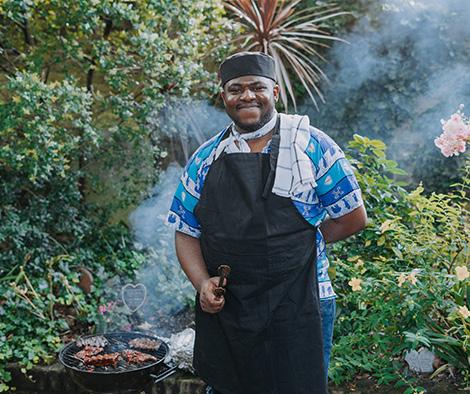
Di sco v er more great causes
refugees to create channels for referral. Nowadays about 30% of our referrals come from the refugee community itself.
We work with about 50 nationalities. Before the current Afghan crisis we only had eight Afghans on our programme but we are expecting that to increase. Syrians make up about 25% of the community but we also help people from Iraq, Iran, Eritrea, Nigeria, Ethiopia, Albania and a few Chinese refugees.
WHAT KIND OF BUSINESSES HAS TERN HELPED TO LAUNCH?
Amazingly, 15% of the refugees we work with have started charities or social enterprises, but almost 90% are looking at business models that have some form of social impact – hiring refugees, for instance, or providing discounted services for them.
Businesses launched via TERN cover around 20 different industries. The most common are food and beverage (making up 20%), not-for-profits (15%) and tech-based start-ups (10%).
WHAT’S BEEN YOUR BIGGEST CHALLENGE?
The hardest thing was building revenue at the start. As you build momentum it becomes easier to sustain cash flow but we worked for nothing for the first 18 months. This means there is a huge barrier to people from more disadvantaged backgrounds starting a social enterprise. We have to find a way to enable people to have a personal income as they start out, because not everyone is privileged enough to be able to work for free.
AND YOUR PROUDEST MOMENT?
This year we had an event to celebrate our five-year birthday and invited some entrepreneurs. They spoke so powerfully about what it meant for them to have a community that was theirs, a space to create and innovate. It’s also been amazing to see our famous partner Ben and Jerry’s launch ice cream flavours in support of refugee entrepreneurs.
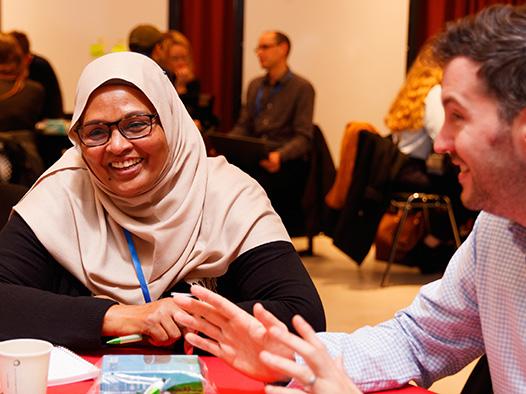
GIVE US AN EXAMPLE
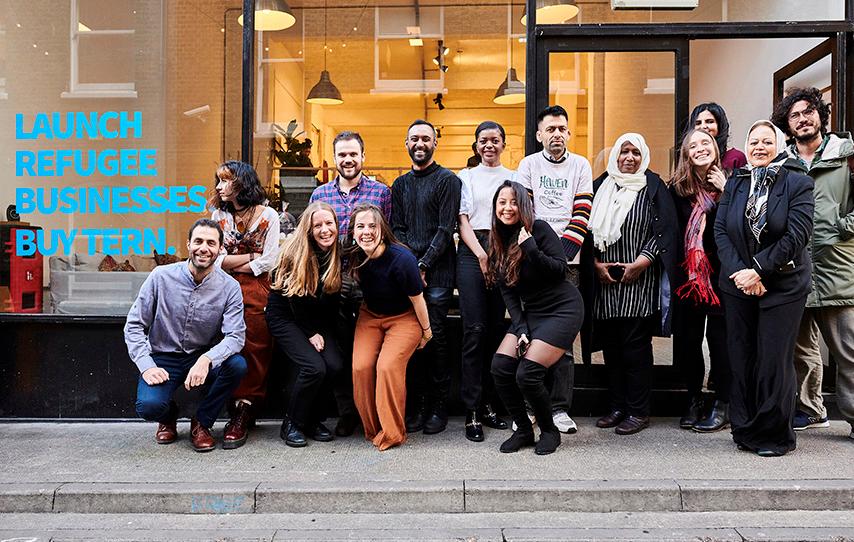
One inspiring graduate is Yeukai Taruvinga, a Zimbabwean woman who arrived in the UK aged 19 and was in limbo for nine years, fighting to gain her status to work. She set up a charity called Active Horizons, focused on supporting disadvantaged youths in London facing issues around marginalisation, such as isolation, mental health problems and unemployment. She now supports 150 youths, primarily refugees and asylum seekers, and has just launched a second business selling ‘handbags for risk takers’, all while being a young mum. It goes to show that when you empower leaders from disadvantaged communities, they create mobility and solve social issues for their own community.
Another entrepreneur is Usman Khalid, a Pakistani man who was in a detention centre before he gained his status and started a coffee shop in London, training refugees as baristas.
You can read more stories on Anqa (anqacollective.org) an online marketplace for refugees which we launched. Here you can buy honey from Bees and Refugees by Ali Alzein from Syria, Nana Nokki’s sauce from Nigerian refugee Chineze MaxOnyeukwu and cushions, wall art and bags from Two Leaves Studio by IAtefeh and Niloo from Iran.
Shopping that supports refugees
Anqa is an online marketplace which connects you to a range of amazing products made by refugee entrepreneurs anqacollective.org
retro treats shopping heaven
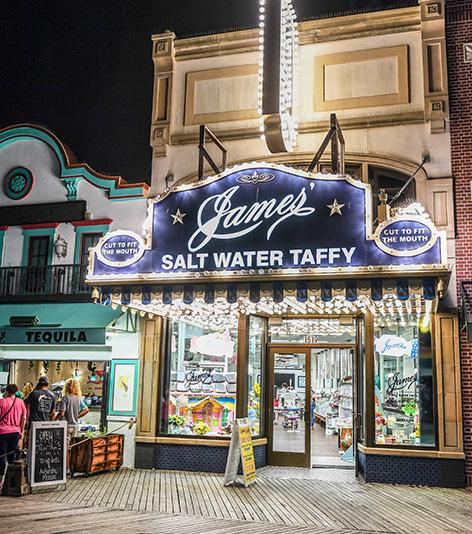
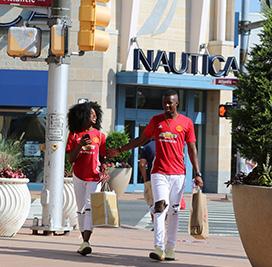
All-
AMERICAN
Heading to the U.S. in 2022? Make it count by visiting Atlantic City for all-American attractions, funky nightlife, great shopping and beautiful beaches
the Steel Pier
Alively beach resort renowned for offering good old-fashioned seaside fun as well as lively nightlife, Atlantic City is packed full of quirky attractions and memorable events all year round.
The action in Atlantic City – or AC – is centred around its four-milelong boardwalk. Just steps from this atmospheric stretch you’ll find shops, five-star resorts, casinos (there are nine impressive casino resorts in AC, six of them looking over the glistening Atlantic Ocean), fairground-style attractions and entertainment all at hand.
Built in the 1870s, the boardwalk is an Americana icon which evokes a sense of nostalgia as sweet as the famous saltwater taffy which is sold all along it. Thanks to a new open container law you can now walk along the Boardwalk with a cocktail in hand, taking in the sights and sounds as you sip.
PIER PRESSURE
Branching off the boardwalk, the beloved Steel Pier is packed with old-fashioned amusement rides and carnival games. Ride the retro ferris wheel (the U.S.’s third largest), or board the Slingshot if you’re looking for thrills. You can also take off on a helicopter ride from here. There’s lots of treats to be had, from candy floss (or cotton candy as it’s known here) to funnel cakes (made from batter).
UNIQUE LANDMARKS
You’ll also need a head for heights if you visit Absecon Lighthouse, which has 228 steps to transport
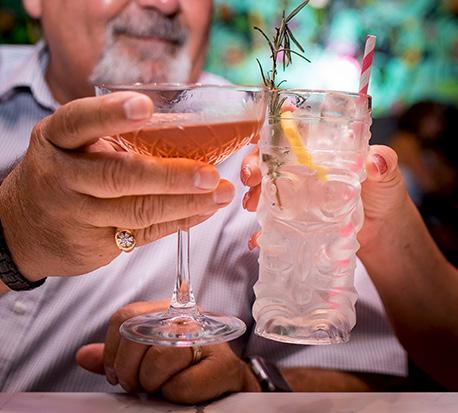
visitors 171 feet high in the sky. The views are the biggest perk, of course, but inside a history museum sheds light on the area’s heritage too.
AC’s quirkiest landmark sits about five miles southwest of AC, but it’s worth the trip to see a six-storey tall, 90-tonne elephant. Built in 1881 to attract homebuyers to the area, Lucy is now a National Historic Landmark. You can even climb up to the platform on her back where you can enjoy great ocean vistas, or take a tour of the elephant’s insides, which was once one of the world’s most bizarre hotels! learn to surf, try kayaking, or take a bike ride along the Boardwalk. Boat tours take you out on the ocean to spot dolphins or round the back bays to admire AC’s impressive skyline.
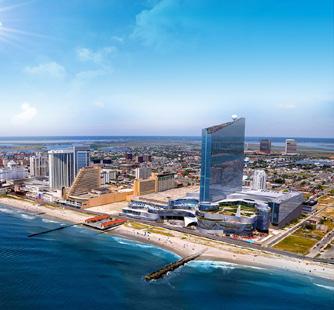
The Quarter
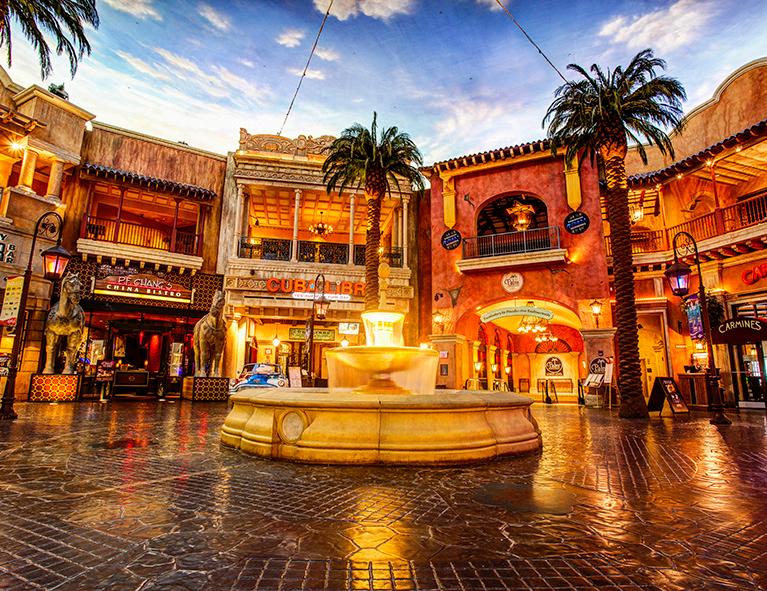
SHOP UNTIL YOU DROP
Book it Find out more about Atlantic City and the surrounding area of New Jersey, which is home to vineyards, retro resorts and many more beautiful beaches. charitable.travel/ atlantic-city From designer boutiques to factory outlets, AC is full of shopping options and it’s tax-free for clothing and shoes. AC’s Tanger Outlets hosts a collection of over 60 retail outlets with big names like Nike, American Eagle, Pandora and Kate Spade New York. The Quarter at Tropicana offers more one-of-a-kind shopping in places like Zephyr Gallery and The Old Farmer’s Almanac General Store.
LAND ON THE ORANGE LOOP
Just steps from AC’s Boardwalk is its famous Orange Loop. Borrowing its name from Monopoly, the Orange Loop starts with the beach block of Tennessee Avenue and expands into St. James Place and New York Avenue, with oneof-a-kind restaurants, bars, live music venues, coffee shops, yoga studios and more – collectively its certainly more entertaining than the famous board game.
If you fancy a drink you’re in the right place. Check out the Little Water Distillery, AC’s first and only craft distillery to produce whiskey, rum, vodka and gin. Next door is The Seed: A Living Beer Project, where you can tour a brewery and taste its fruits in the taproom.
You’ll find a huge choice of tipples at Tennessee Avenue Beer Hall, over a hundred craft beers as well as unique dishes like lobster tator tots. Other great dining spots on
the Orange Loop include Cuzzie’s Pizzeria Kitchen, a traditional Italian American pizzeria which pushes culinary boundaries.
HIT THE BEACH
There are seven miles of sand in AC, and a plethora of seaside activities to enjoy if you tire of relaxing on the beach. You can
LET AC ENTERTAIN YOU
The Jim Whelan Boardwalk Hall was built in 1929 to host conventions but its 137-foothigh vaulted ceiling went on to host legends like Elton John, Paul McCartney, The Rolling Stones and the Beatles. Today its two venues, with a combined capacity of nearly 18,000, still host world-class events ranging from concerts to boxing matches.
You can also stop here to see the largest musical instrument on earth – the hall’s incredible pipe organ is more powerful than a dozen orchestras – or visit the Atlantic City Experience for a fascinating history lesson.










